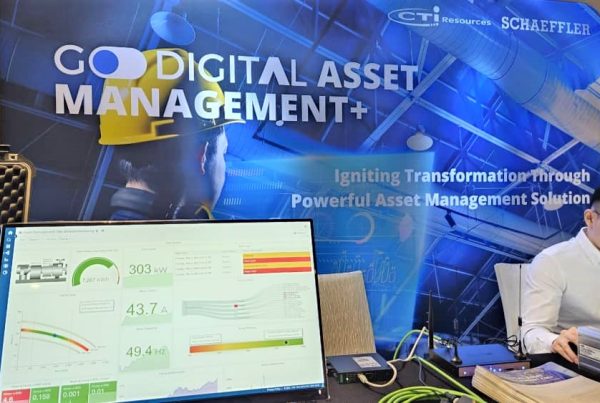Digital Lean Management Accelerates Lean Performance Gains in Manufacturing
Post on Sept 17, 2020
Lean management is a proven practice to establish a continuous improvement culture and drive organizations towards higher operational performance.
Today’s emerging technologies offer to digitize Lean practices and empower employees with a new level of actionable, relevant information and workforce engagement to further improve operational effectiveness and plant productivity. Lean experts and consultants predict additional performance gains up to 20% – for both companies entering the lean exploration phase as well as for companies which already reached Lean excellence with a traditional Lean approach.
Other consultants believe that digital technologies and digital tools offer the potential for doubling the average cost savings from 15% to 30% vs. a traditional lean management approach for improving overall equipment effectiveness, labor productivity, plant output, and other performance metrics.
What is Digital Lean Management?
Digital Lean is the capability of using digital technologies for increasing the effectiveness and efficiency of Lean management principles and methods.
Today’s technologies are defining a digital transformation towards Industry 4.0 or Smart Manufacturing architectures for new connected ways of working and new interoperability between machines, systems, and people.
But in many manufacturing plants, paper or excel sheets still play an important role in managing work by distributing paper prints with work schedules, work instructions, and for reporting work done. The limitations of data captured on paper and after the fact reporting can be also considered “waste” in lean terms in delays or absence of up to date information and the non-value add activities to make use of the data.
The digitization of work and Lean data collection with central data storage allows to largely eliminate the information management waste of paper systems with instant accessibility and through higher levels of information generated from more complex data relationships.
More effective manual or automatic data collection, easier access to information, new insights and by augmenting work with information in personalized job context offers new ways of worker empowerment and intelligence which helps to further reduce all forms of Lean waste from the manufacturing process and to continuously improve productivity, agility, and sustainability of manufacturing operations.
Real-time Information visibility and digital collaboration enable situational awareness and problem solving
These new digital lean management opportunities help solve situational problems with decision making support and team collaboration in near real-time to minimize the impact of unplanned events
Real-life examples are
- Measuring and monitoring of Key Performance Indicators (KPIs) in near real-time to facilitate decision support and engaging employees to continuously improve
- Notifications and escalation of critical shop floor events (Andon) via email, push notifications or other electronic communication to reduce the time to corrective actions
- Digital factory wall KPI and Andon dashboards to facilitate team collaboration.

Andon Dashboard
Data-driven continuous improvement and root cause analyses help to systematically reduce waste
The other large opportunity of a digital lean approach is the systematic problem solving with the help of detailed historical data and analytic tools for root cause analyses and continuous improvement decision making

Pareto analyses of downtime reasons impacting production line performance
Lean practices captured in commercial offerings ease the Lean management adoption
Several industry-standard Lean practices and methods such as measuring operational KPIs, Digital Dashboards for a Visual Factory, Digital Andon, Root cause analyses, Kanban, Standardization of Work and more have been captured in industrial software tools and applications (such as MES or process historian applications, etc) and are offered as commercial of the shelf digital lean tools as provided with AVEVA Discrete Lean Management software.
The most prominent Lean Practice which can be found in many industrial applications today is the Overall Equipment Effectiveness (OEE) Key Performance Indicators (KPI) commonly used for continuous improvement of plant asset utilization and operational effectiveness.
The great advantage of Lean practices captured in the commercial of the shelf software is the ability to quickly deploy and apply the standard practice and gaining benefits without being a Lean expert already.
Commercial software offerings additional come with services such as training programs, deployment support, and professional consulting for the adoption of the Lean Practice and the tools, and to help with the change management process.
With digital lean tools designed for ease of use and intuitive visualization – users will quickly learn to leverage and adapt the methodology on the go and while harvesting the low hanging fruits.
Once the workforce realizes the value of data turned into information, they will be supportive of further adoption of lean practices and will engage to improve productivity and sustainability of manufacturing operations.
Find out more info from The Whitepaper.







